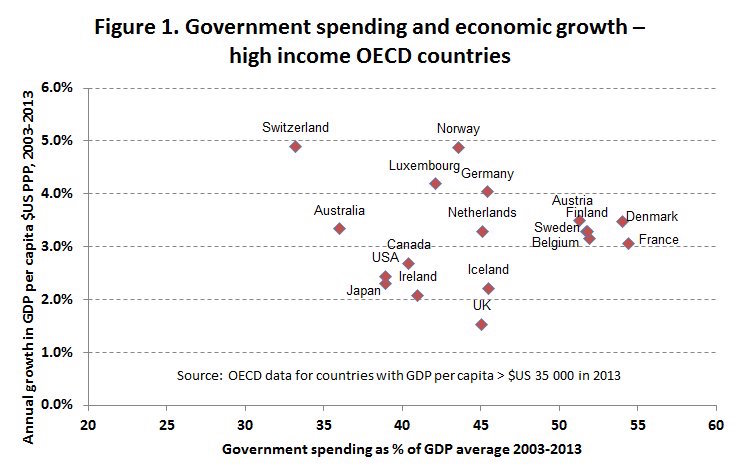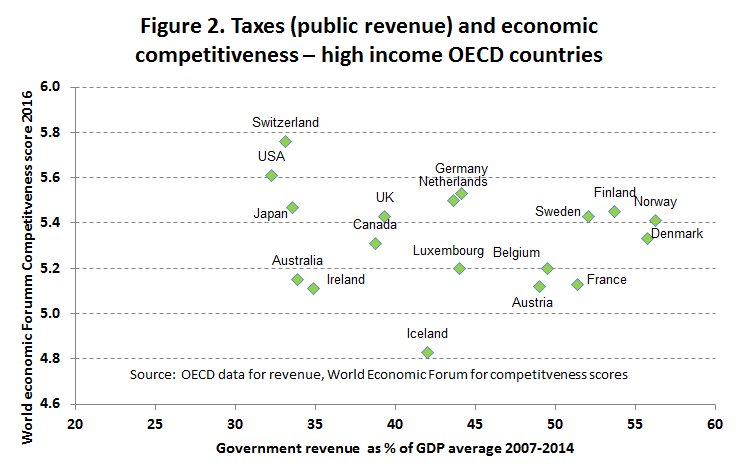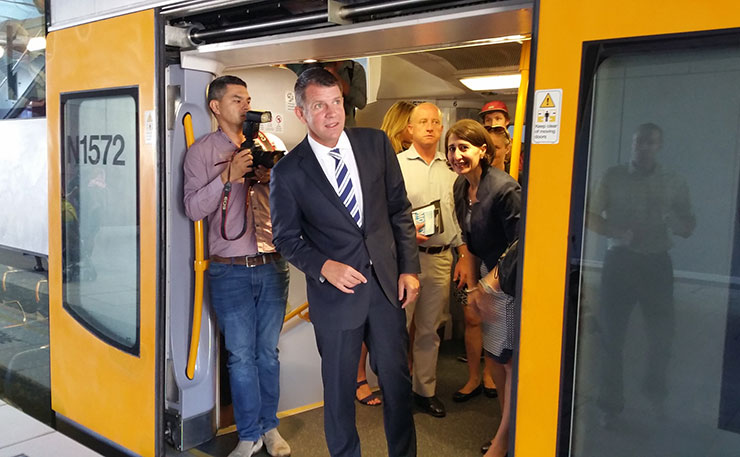ANALYSIS: By pitting the states against each other, Treasury is encouraging a race to the bottom. Only the federal government can front the cash needed for good hospitals and schools, writes Ian McAuley.
Premiers Jay Weatherill and Mike Baird have suggested raising the GST to raise revenue for services provided by state governments, particularly health and education which comprise about half of states’ recurrent outlays. They would know that while GST is regressive its regressivity is offset by the progressive benefits of spending on health and education.
They focussed on the GST because while it’s collected by the Commonwealth, it is fully distributed to the states, and it comprises 45 per cent of state governments’ revenue.
Unfortunately, that focus distracted from their basic point – a call for extra revenue with some assurance of long-term stability. That call is particularly relevant in light of Abbott having lied about his commitment to Gonski funding.
The Commonwealth Treasury, however, now a highly politicised agency, has twisted the argument to be one about raising the GST to reduce corporate and personal income tax. It’s hardly surprising that they found there would be no economic benefit in such a trade-off.
Drawing on legitimate community concerns about raising the GST was a clever and deceptive way to kill of the premiers’ call for extra revenue.
The question we should be asking is about the economic cost of trying to get by with inadequate public revenue. Treasury economists talk about the “tax burden”, and the “deadweight loss” of raising taxes, but they rarely talk about the economic cost of inadequate public services – the costs of inadequate infrastructure and poor education standards – and the costs of expensive private sector work-arounds, such as toll roads and private health insurance, as funding mechanisms to replace taxes.
To stress a point many have been making for a long time, there is no evidence that low taxes or “small government” are good for economic performance. As the economist Paul Samuelson demonstrated 60 years ago, in any economy there is an optimum mix of public services and private goods and services, and there are strong biases towards under-provision of public services. At one extreme are places where the public sector has all but collapsed – we call such countries “failed states”. We’re not at that point but it’s a fair bet that we are on the “small government” side of that optimum.
If there were some rule, as Treasurer Morrison implies, that expanding the scope of government is detrimental to economic performance we would expect, for comparable countries, that the larger the government’s share of the economy the greater would be its economic growth.
But evidence does not support that proposition.
Figure 1, drawn from OECD data over ten years from 2003 to 2013 (to remove any short-term influence) reveals no relationship between government spending and growth in high income “developed” countries. We’re down at the “small government” end of the chart, and in spite of the mining boom over this period, our growth in per capita GDP is no better than average for this group of countries.

It’s also worthwhile looking at government revenue – do high taxes really suppress economic competitiveness?
Figure 2 looks at taxes in those same countries, over a more recent period (2007 to 2014 due to data limitations), and plots that data against competitiveness scores from the World Economic Forum.

Again, there is no relationship, and on this score Australia is well behind similar countries. Most “big government” countries, particularly Germany and the Scandinavian countries, score far better than Australia, illustrating the point that what counts is not the “size” of government, but the efficiency with which government services are delivered.
Federally, both the Coalition and Labor are avoiding the issue of inadequate public revenue. The Coalition has abandoned its promise of a discussion on tax reform – remember its commitment to a green paper-white paper process? Labor is talking about a few worthwhile but inadequate fiddles at the edges (such as its half-hearted go at tax breaks for property speculators).
It’s only state premiers – the men and women responsible for delivering the most important government services – who are raising the real issue. We aren’t collecting enough revenue.
Now we’re starting to hear the suggestion that if states want more revenue, they should raise it themselves.
In our federation, however, states have a lousy tax base. Payroll taxes, gambling taxes, vehicle registration fees and property transfer taxes are generally worse than the GST in terms of equity, economic efficiency and administrative simplicity.
Worse, unless there is some binding contract between states, it takes only one state to start a race to the bottom, as happened with inheritance duties and stamp duties on financial transactions, when the Bjelke-Petersen Government in Queensland used “tax competition” as a means to attract industry. Abolishing these taxes helped Queensland in the very short-term, but it was a classic “prisoners’ dilemma” situation, in which all states had to follow suit. There were no winners, just losers all around.
In the USA we can see this phenomenon of tax competition writ large, as poor states with poor tax bases become even poorer because they’re unable to provide the public services needed in a modern competitive economy. The problem is particularly manifest in school education, where schools are funded by local government taxes. Poor cities have poor schools, and the education gaps and therefore income gaps in that country are becoming even wider.
Our premiers know the problems of tax competition, which is why they have generally accepted the principle of centralisation of tax collection by the Commonwealth. (Around 80 per cent of our taxes are collected by the Commonwealth.) The GST, because it is collected by the Commonwealth, has that assurance of a binding contract to overcome the “prisoners’ dilemma” problem.
If we’re not to have a higher GST, states need an additional assured source of revenue, such as a share of income tax collected by the Commonwealth. Contrary to the propaganda of those who call for tax cuts, Australia does not have high personal income tax. At 10.8 per cent of GDP our personal income tax is just below the 10.9 per cent of GDP in prosperous OECD countries (but the same database shows our payroll taxes are among the highest).
Two premiers, at least, have shown a degree of leadership in the taxation debate. Federally, both Labor and the Coalition, in going along with the “revenue neutral” idea, are ducking the hard issue. We’re collecting too little tax.
Donate To New Matilda
New Matilda is a small, independent media outlet. We survive through reader contributions, and never losing a lawsuit. If you got something from this article, giving something back helps us to continue speaking truth to power. Every little bit counts.





